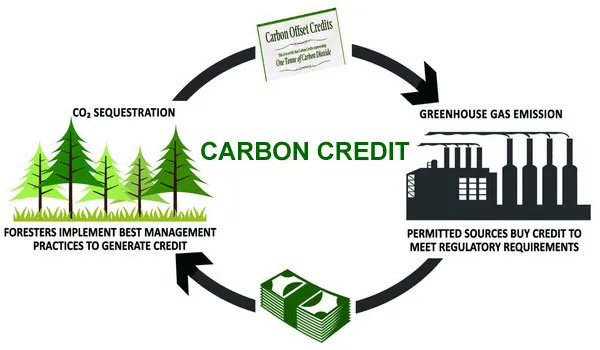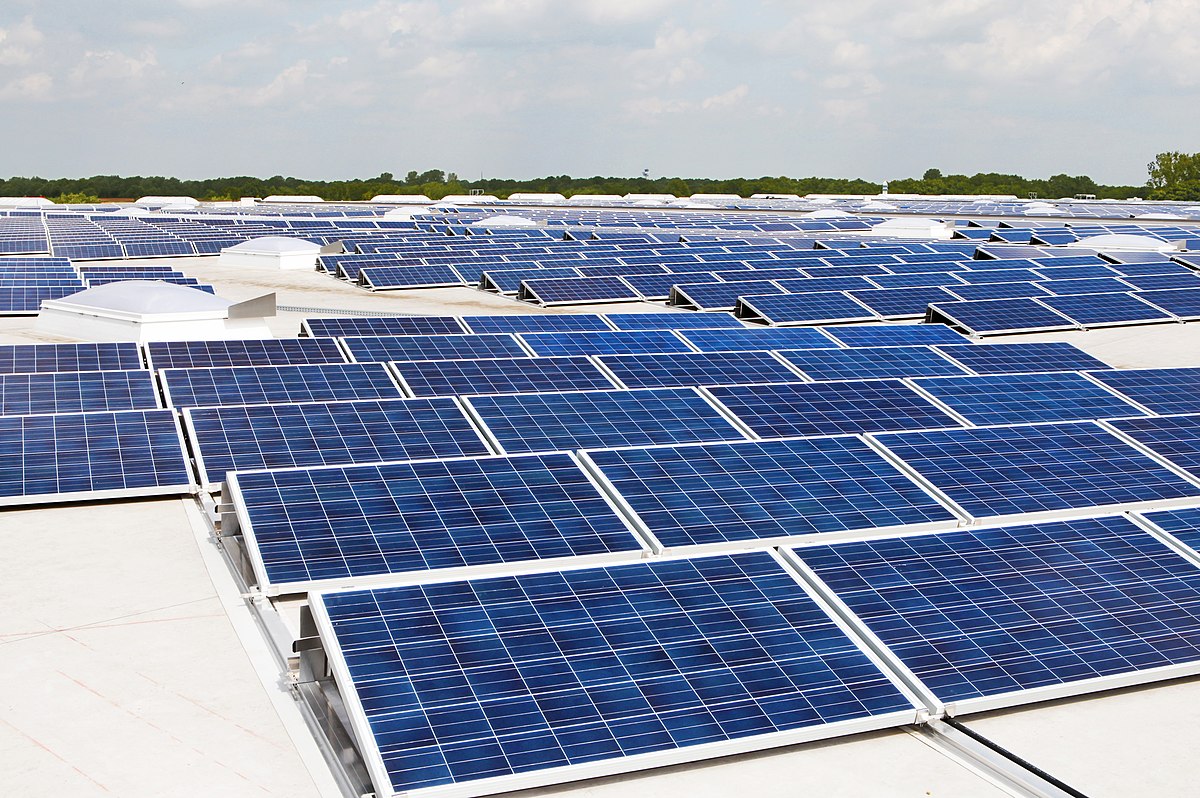Renewable Energy for a Greener Future: 10 Crucial Reasons the World Should Go Green
In a world facing unprecedented environmental challenges, the transition to renewable energy is not just an option but a necessity for a sustainable and healthier future.
Here are 10 compelling reasons why the world should go green and embrace renewable energy sources:

1. Climate Change Mitigation:
- Renewable energy significantly reduces greenhouse gas emissions, helping combat climate change and its adverse effects on the planet.
2. Sustainable Development:
- Investing in renewable energy fosters sustainable development by meeting the energy needs of the present without compromising the ability of future generations to meet their own needs.
3. Energy Independence:
- Utilizing renewable resources reduces dependence on finite and often geopolitically sensitive fossil fuels, promoting energy independence for nations.
4. Economic Growth:
- The renewable energy sector offers substantial economic opportunities, creating jobs, fostering innovation, and driving economic growth.
5. Environmental Conservation:
- Harnessing energy from sources like sunlight and wind minimizes environmental degradation, preserving ecosystems and biodiversity.
6. Reduced Air Pollution:
- Unlike traditional energy sources, renewable energy produces minimal air pollutants, contributing to cleaner air and improved public health.
7. Technological Advancements:
- Embracing green technology encourages research and development, leading to continuous advancements in renewable energy solutions.
8. Cost-effectiveness:
- Over time, the costs associated with renewable energy technologies have decreased, making them increasingly competitive and cost-effective compared to conventional energy sources.
9. Solar Power Potential:
- Solar energy, a prominent renewable source, is abundant and can be harnessed in various ways, providing a reliable and sustainable power supply.
10. Wind Energy Efficiency:
- Wind energy, another vital renewable source, offers a clean and efficient means of electricity generation, with modern turbines becoming more productive and cost-efficient.
As the world grapples with the consequences of climate change, the transition to renewable energy is not just an ecological choice but a moral imperative.
By going green, we pave the way for a cleaner, more sustainable, and prosperous future for generations to come.
It’s time to power progress with the boundless potential of renewable energy.

The Advent of Renewable Energy
The recognition of the importance of renewable energy has evolved over time through a combination of scientific advancements, environmental awareness, and the need for sustainable solutions to global challenges.
Here’s a timeline outlining key developments in how the world came to understand and appreciate the significance of renewable energy:
1. Early Environmental Awareness (1960s-1970s):
- The modern environmental movement gained momentum in the 1960s and 1970s. Concerns about pollution, deforestation, and the finite nature of fossil fuels prompted environmentalists to advocate for cleaner, sustainable alternatives.
2. Oil Crises (1970s):
- The oil crises of the 1970s, marked by supply disruptions and soaring oil prices, underscored the vulnerability of the world’s dependence on fossil fuels. This period highlighted the need for diversified and reliable energy sources.
3. Advancements in Renewable Technologies (1980s-1990s):
- Technological advancements in solar, wind, and other renewable energy technologies during the 1980s and 1990s made these sources more economically viable and technically feasible. The decreasing costs of renewable energy infrastructure contributed to increased adoption.
4. Growing Climate Change Concerns (2000s):
- The scientific consensus on climate change became clearer in the early 2000s, with international bodies like the Intergovernmental Panel on Climate Change (IPCC) highlighting the role of human activities, including the burning of fossil fuels, in global warming. This increased awareness shifted the focus toward low-carbon and renewable energy solutions.
5. International Commitments (2010s):
- Global initiatives, such as the Paris Agreement in 2015, brought nations together to commit to reducing greenhouse gas emissions and limiting global temperature increases. These agreements emphasized the role of renewable energy in achieving climate goals.
6. Economic Viability (2010s-Present):
- The decreasing costs of renewable energy technologies, particularly solar and wind, have made them economically competitive with traditional energy sources. This economic viability has played a significant role in driving widespread adoption.
7. Corporate Sustainability Initiatives (2010s-Present):
- Many corporations have embraced sustainability as a core value, committing to using renewable energy to power their operations. This corporate shift has not only reduced environmental impact but has also set an example for others.
8. Energy Transition Policies (2010s-Present):
- Governments worldwide have implemented policies to encourage the adoption of renewable energy. These policies include incentives, subsidies, and regulations that promote the development and use of clean energy sources.
9. Public Awareness and Activism (2010s-Present):
- Increased public awareness of environmental issues, coupled with grassroots movements and activism, has put pressure on governments and industries to prioritize renewable energy. Public support for clean energy solutions has become a driving force for change.
10. Technological Breakthroughs (Ongoing):
- Ongoing research and technological breakthroughs continue to enhance the efficiency and affordability of renewable energy technologies. Innovations in energy storage, smart grids, and other areas contribute to a more resilient and integrated renewable energy landscape.
The global understanding of the importance of renewable energy has evolved through a combination of environmental consciousness, geopolitical events, technological progress, and international cooperation.
As we move forward, continued advancements and a shared commitment to sustainability will play a crucial role in accelerating the world’s transition to a renewable energy future.

10 Investment Opportunities Associated With Renewable Energy
1. Solar Energy Infrastructure:
- Invest in solar farms and photovoltaic installations that harness the power of sunlight to generate electricity. With advancements in solar technology, these projects offer a reliable and sustainable source of energy.
2. Wind Power Projects:
- Funding wind energy projects, including the development and operation of wind farms, presents a lucrative investment opportunity. As wind turbines become more efficient, they contribute significantly to the renewable energy mix.
3. Energy Storage Solutions:
- Battery technologies and energy storage systems are crucial for stabilizing renewable energy sources. Investing in innovative storage solutions can provide ample opportunities for growth as the demand for efficient energy storage continues to rise.
4. Green Real Estate Development:
- Support the construction of sustainable buildings and communities that integrate renewable energy technologies. Investments in green real estate contribute to energy-efficient urban development.
5. Electric Vehicle Infrastructure:
- The rise of electric vehicles (EVs) creates opportunities for investments in charging infrastructure. Supporting the development of EV charging stations is not only environmentally responsible but also aligns with the growing trend toward sustainable transportation.
6. Sustainable Transportation:
- Invest in companies involved in the production of electric vehicles, public transportation systems, and other eco-friendly modes of transport. The shift toward sustainable transportation is a growing market with considerable potential.
7. Hydroelectric Power Projects:
- Funding hydroelectric power projects, especially those using innovative and environmentally friendly technologies, offers a reliable and consistent source of renewable energy. Hydroelectric power is a well-established and proven investment avenue.
8. Geothermal Energy Exploration:
- Geothermal energy, derived from the Earth’s heat, presents investment opportunities in the exploration and development of geothermal power plants. This renewable source has the advantage of being available 24/7, providing a stable energy supply.
9. Biomass and Bioenergy Investments:
- Support projects involving the conversion of organic materials into bioenergy. Biomass power plants and biofuel production facilities are essential components of a sustainable energy future.
10. Green Bonds and Sustainable Investments:
- Consider investing in green bonds or sustainable funds that specifically target renewable energy projects. These financial instruments allow investors to support a diversified portfolio of environmentally responsible initiatives.
As the world increasingly embraces the transition to clean energy, these investment opportunities not only offer attractive returns but also contribute to a more sustainable and environmentally conscious future.
Diversifying a portfolio with renewable energy investments aligns with the global shift toward a cleaner and greener energy landscape.

5 major organizations and NGOs championing the promotion of renewable energy in the world
**1. International Renewable Energy Agency (IRENA):
- IRENA is an intergovernmental organization that promotes the widespread adoption and sustainable use of renewable energy globally. It provides a platform for countries to collaborate on policy development, share knowledge, and engage in capacity-building initiatives to accelerate the transition to renewable energy.
2. Renewable Energy World Alliance (REWA):
- REWA is a non-profit organization dedicated to advancing the use of renewable energy worldwide. It focuses on education, advocacy, and collaboration to accelerate the adoption of sustainable energy solutions. REWA brings together governments, businesses, and NGOs to drive positive change in the renewable energy sector.
3. Greenpeace:
- Greenpeace is a global environmental organization that actively campaigns for a transition to renewable energy and the phasing out of fossil fuels. Through direct action, lobbying, and advocacy, Greenpeace works to raise awareness about the environmental impact of conventional energy sources and promotes sustainable alternatives.
- WWF, a leading global conservation organization, focuses on promoting renewable energy as part of its efforts to address climate change and reduce the ecological footprint. WWF collaborates with governments, businesses, and communities to support the development and implementation of sustainable energy solutions.
5. Rocky Mountain Institute (RMI):
- RMI is an independent, non-profit organization that works to transform global energy use to create a clean, prosperous, and secure low-carbon future. RMI collaborates with businesses, communities, and governments to develop innovative solutions and strategies for advancing renewable energy, energy efficiency, and sustainable development.
These organizations play pivotal roles in advocating for policy changes, conducting research, and implementing initiatives that contribute to the widespread adoption of renewable energy. Through their collective efforts, they aim to address climate change, reduce dependence on fossil fuels, and create a more sustainable and resilient energy landscape globally.

A Global Call to Action for Renewable Energy Adoption
As our planet faces the escalating impacts of climate change, there has never been a more critical moment for collective action. To safeguard the future of our environment, we must unite in a global effort to transition from conventional energy sources to sustainable, renewable alternatives. Here is a call to action to encourage the greater world population to embrace renewable energy:
1. Raise Awareness:
- Educate communities about the benefits of renewable energy through widespread awareness campaigns. Highlight the positive impact on the environment, public health, and the economy to inspire informed decision-making.
2. Advocate for Policy Changes:
- Mobilize individuals and communities to advocate for policy changes that support the transition to renewable energy. Governments worldwide need to implement and strengthen policies that incentivize and accelerate the adoption of sustainable energy sources.
3. Support Renewable Energy Initiatives:
- Encourage investments in renewable energy projects and technologies. Individuals and businesses can contribute by supporting or investing in initiatives that focus on solar, wind, hydro, and other renewable sources.
4. Embrace Energy Efficiency:
- Promote energy efficiency as an integral part of the renewable energy transition. Encourage the use of energy-efficient appliances, buildings, and transportation to reduce overall energy consumption.
5. Foster Innovation:
- Support research and development in renewable energy technologies. Innovation plays a crucial role in making renewable energy more accessible, affordable, and efficient. Advocate for increased funding and collaboration in this critical field.
6. Engage Communities:
- Mobilize communities to take part in renewable energy projects at the local level. Community-driven initiatives, such as solar cooperatives and neighborhood energy programs, can empower individuals to be part of the solution.
7. Make Sustainable Choices:
- Encourage individuals to make sustainable choices in their daily lives, such as using renewable energy providers, opting for electric vehicles, and reducing energy waste. Small actions collectively contribute to a significant impact.
8. Educate Future Generations:
- Integrate renewable energy education into school curricula to empower the younger generation with the knowledge and values needed for a sustainable future. Foster a sense of responsibility for the environment from an early age.
9. Collaborate Globally:
- Emphasize the need for global collaboration. Climate change knows no borders, and a unified effort is essential. Encourage international partnerships and cooperation to address the challenges of transitioning to renewable energy on a global scale.
10. Lead by Example:
- Inspire leadership through personal and organizational examples. Showcase success stories of individuals, businesses, and communities that have successfully transitioned to renewable energy, emphasizing the positive outcomes and benefits.

By answering this call to action, we can collectively create a momentum that propels the world towards a sustainable and renewable energy future.
The time to act is now, and each individual has a role to play in securing a cleaner, healthier planet for generations to come.
CONCLUSIONS
In conclusion, the journey towards recognizing and valuing the importance of renewable energy reflects humanity’s collective response to the urgent call for environmental stewardship and sustainable living.
From the early stirrings of environmental consciousness to the present era of advanced technology and global collaboration.
The evolution of our understanding has been profound and transformative.
The seismic shifts in the global perspective on renewable energy began with the awakening to environmental threats in the mid-20th century.
The oil crises of the 1970s acted as a wake-up call, exposing the vulnerabilities inherent in an energy landscape dominated by fossil fuels.

Subsequent decades witnessed the relentless pursuit of innovation, propelling renewable technologies into the spotlight.
The realization that harnessing the power of the sun, wind, and other sustainable sources could not only mitigate environmental degradation.
But also create a more resilient and diversified energy infrastructure fueled the momentum.
Crucially, the growing concerns over climate change in the early 2000s propelled renewable energy to the forefront of international agendas.
Agreements like the Paris Agreement marked a commitment from nations worldwide to reduce carbon emissions, emphasizing the pivotal role of renewable energy in this ambitious endeavor.
This global consensus underscored the interconnectedness of our planet and the shared responsibility to safeguard it for future generations.
As we entered the 2010s, the economic viability of renewable energy became a game-changer.
The declining costs of solar and wind technologies shattered preconceived notions, making clean energy not just an ethical choice but a cost-effective one.
Corporations, recognizing the value of sustainability, began embracing renewable energy as a cornerstone of their operations, setting a precedent for responsible business practices.
Governments, spurred by both environmental imperatives and economic potential, enacted policies that incentivized renewable energy adoption.
These policy interventions ranged from tax credits and subsidies to ambitious renewable energy targets, driving a profound shift in the global energy landscape.
Simultaneously, public awareness, buoyed by grassroots movements and activism, emerged as a force capable of influencing both public discourse and policy decisions.
Today, we stand at the precipice of a new era—one where technological breakthroughs continue to push the boundaries of what is possible.
From advancements in energy storage to the development of smart grids, our ability to harness renewable energy efficiently and intelligently is reaching unprecedented heights.
The power of innovation, combined with the collective will of individuals, communities, businesses, and nations, is propelling us towards a future where renewable energy isn’t just an option but the predominant force shaping our energy destiny.
In this grand tapestry of change, the call to action resounds louder than ever.
We must, as a global community, recognize that the importance of renewable energy extends far beyond individual choices.
It is a commitment to a sustainable, resilient, and equitable future—a future where energy is harnessed responsibly.

Where economies thrive without compromising the environment, and where every individual plays a role in the symphony of progress.
The path forward demands boldness, collaboration, and unwavering determination. It calls for governments to enact and enforce policies that accelerate the transition to renewable energy.
It calls for businesses to prioritize sustainability not as a mere trend but as an ethical imperative. It calls for individuals to make conscientious choices.
Advocating for change in their communities and demanding a greener, cleaner world.
As we reflect on the remarkable journey of understanding the importance of renewable energy.
Let us carry this awareness forward as a torch lighting the way to a brighter, more sustainable future.
The challenges ahead are formidable, but so is our capacity for innovation, cooperation, and resilience.
Together, let us forge ahead into an era where renewable energy isn’t just a choice;
It’s the force that propels us towards a world where the delicate balance between humanity and the planet is restored.
And where the promise of a sustainable tomorrow becomes a reality for all.





Leave a Reply